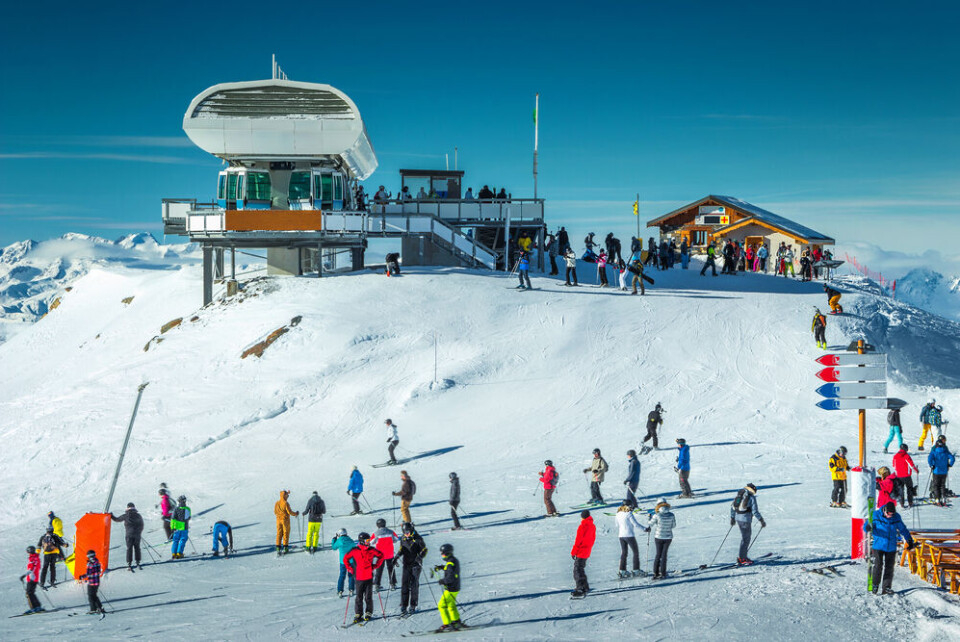-
Which fruits, vegetables and fish are in season in France this April?
Strawberry season begins, compensating for end of winter vegetables
-
Why are drivers in France increasingly getting speeding fines without being ‘flashed’?
Here is why you may have received an unexpected fine in the post
-
Marine Le Pen appeal decision should be given in summer 2026, says court
It comes as the RN leader continues to maintain her ‘innocence’ and right-wing politicians have called her conviction ‘an attack on democracy’
French ski stations appeal higher costs for seasonal employees
They argue that their fixed-term contracts are different to the short-term contracts on which the government is levying extra charges

Ski stations in France face paying higher unemployment benefits for workers due to their use of fixed-term contracts.
The stations are set to appeal these higher charges at France’s highest administrative court - Conseil d'État - this morning (October 5).
The change is due to a key measure of the 2019 reform of France’s assurance chômage - unemployment benefit system - which created a bonus malus, carrot and stick reward system, to encourage companies to avoid excessive use of short-term contracts and to give more long-term work options.
Essentially it means that companies which ‘excessively’ use Contrat à Durée Determinée (CDD) - a fixed duration contract - will see the unemployment benefit tax rate payable by employers increase from 4.05% to 5.05%.
First year charges apply
This is the first year that ski stations will have to pay the higher rate. Previously they were exempted from it to aid recovery from the effects of Covid on the industry.
Domaines skiables de France, which represents ski area operators, said the appeal is an attempt to force the government to change the measure which it says penalises the sector.
“Our companies have to use seasonal fixed-term contracts to cover the winter and summer periods,” Alexandre Maulin, head of Domaines skiables de France, told Le Figaro.
Ski area operators are considered transport providers and therefore are subject to the bonus malus criteria for transport and storage companies as is, for example, France’s rail company SNCF.
Mr Maulin said, “This makes no sense. We have drawn the attention of the different travel ministers since 2019 to the problem but without success”.
Read more:Energy crisis: Will French ski resorts raise their prices this year?
‘Using seasonal workers differs from CDI avoidance strategies’
Mr Maulin said that because of this system, ski area operators would be hit with the penalty, even though “using seasonal workers has nothing to do with any Contrat à Durée Indéterminée (CDI) [permanent] contract avoidance strategy”.
He stated that in mountain regions seasonal contracts are not short-term contracts as they last on average between three and four months.
There is also a system in place which automatically renews seasonal contracts from one season to another.
Mr Maulin told Le Figaro “the government initially told us we would not be affected. However all these costs are increasing, they are cutting ever more into our margins. At some point this must end."
“Our financial stability is precarious,” said Hervé Pouneau, director of a ski station group which manages the only ski station in the Cantal department in the Auvergne-Rhône-Alpes region. “Hitting us with a 1% increase in unemployment benefit contributions in addition is unfair”.
Mr Pouneau’s group currently has a €500,000 deficit. In summer, it employs around 40 seasonal workers, which increases to around 100 in winter. It also has 25 permanent staff members.
“I will never be able to employ seasonal workers under CDI contracts,” said Mr Pouneau. “Their jobs are not permanent, unless the station opens year round which is impossible”.
Related articles
French regions mull joint bid to host 2030 Winter Olympics
‘Run of my life’: French skier hits 255.5km/h to break speed record
























